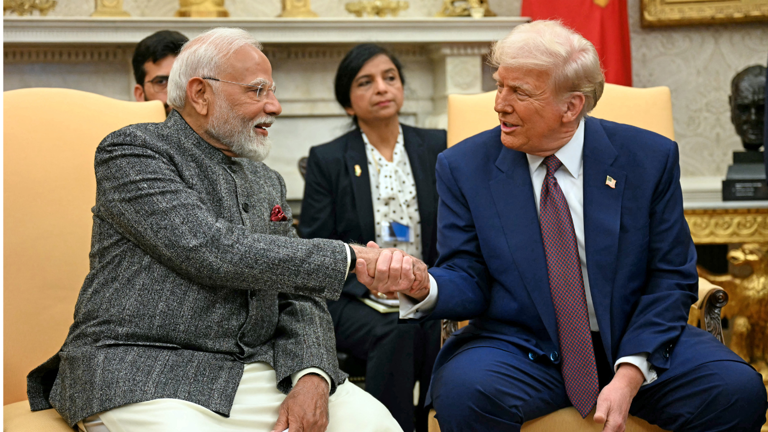New Delhi, India – February 2025 – The Ministry of External Affairs (MEA) has expressed serious concerns over recent claims that $21 million in USAID funds were allegedly funneled into Dogecoin (DOGE), the popular cryptocurrency known for its meme origins. The revelation has sparked intense discussions within diplomatic and financial circles, raising questions about the transparency and security of international aid programs.
The Controversial Claim
The controversy emerged after reports suggested that a significant portion of US foreign aid, distributed through the United States Agency for International Development (USAID), may have been converted into DOGE. While the specifics of the claim remain unclear, it has fueled speculation about potential mismanagement or misallocation of aid funds.
An anonymous whistleblower, reportedly linked to USAID operations, alleged that aid meant for developmental projects in various countries was instead redirected into Dogecoin investments. The claim gained traction on social media, with some crypto enthusiasts speculating that this could have been an attempt to leverage DOGE’s volatility for potential financial gains.
MEA’s Official Response
Reacting to the claims, an MEA spokesperson stated, “These reports, if true, are deeply troubling. The use of public funds for speculative cryptocurrency investments raises serious ethical and financial concerns. We are closely monitoring the situation and expect full transparency from the concerned parties.”
The MEA has called for a thorough investigation into the matter, urging the US government to clarify whether such transactions took place and how international aid funds are being monitored.
USAID’s Position and Response
USAID, the US government agency responsible for administering foreign aid, has strongly denied any wrongdoing. In an official statement, a USAID spokesperson emphasized that the agency maintains strict financial oversight over its funds and that any allegations of mismanagement will be thoroughly investigated.
“We have not authorized or facilitated any transaction involving Dogecoin or any other cryptocurrency,” the statement read. “USAID follows rigorous protocols to ensure that financial assistance is used solely for its intended purposes—supporting development, humanitarian aid, and economic stability in recipient nations.”
Despite USAID’s denial, the controversy has already prompted calls from US lawmakers for a deeper audit of foreign aid expenditures, particularly in relation to digital assets and their potential misuse.
The Growing Concern Over Cryptocurrencies in Aid Programs
The incident highlights broader concerns about the role of cryptocurrencies in foreign aid. While digital assets offer advantages such as fast transactions and lower transfer costs, they also present risks related to transparency, volatility, and potential misuse.
International financial experts have warned that cryptocurrencies, particularly those with highly fluctuating values like Dogecoin, may not be suitable for development aid. “While blockchain technology can improve financial inclusion, its application in foreign aid must be handled with caution,” said financial analyst Rajesh Mehta. “The potential for funds to be misappropriated or lost due to price swings makes it a risky proposition.”
Political and Diplomatic Ramifications
The allegations have also added a diplomatic layer to the controversy. India and the US share strong economic and strategic ties, and any suggestion of financial mismanagement in aid programs could strain aspects of their partnership. New Delhi has previously raised concerns over the need for greater oversight of international financial transactions, especially in sectors related to development aid.
Additionally, with India tightening its regulations on cryptocurrency trading and usage, the MEA’s response signals a cautious approach toward digital assets. The Indian government has been advocating for a global regulatory framework to manage cryptocurrencies and prevent financial malpractice.
Cryptocurrency Community’s Reaction
The crypto community has had mixed reactions to the claims. While some DOGE supporters dismissed the allegations as baseless and sensationalized, others saw it as an indication of the increasing mainstream adoption of cryptocurrencies, even in unexpected sectors.
Elon Musk, a well-known proponent of Dogecoin, reacted to the news with a cryptic tweet that simply read, “Much wow. Such transparency needed.” His response added to the speculation surrounding the issue but did little to clarify whether the claim had any legitimacy.
Meanwhile, prominent crypto analysts have argued that the reports could be an attempt to discredit cryptocurrencies or push for stricter regulatory frameworks in the financial sector.
The Way Forward
In response to the controversy, financial watchdogs and government agencies are likely to increase their scrutiny of aid disbursements and ensure stricter oversight of funds. Experts suggest that enhanced tracking mechanisms and transparency reports should become mandatory for all international financial transactions, especially those involving aid and humanitarian efforts.
“The key takeaway from this situation is the urgent need for stronger accountability measures,” said economist Dr. Shweta Kumar. “Whether or not these claims are true, they highlight how easily funds can be misdirected if proper checks are not in place.”
Conclusion
The MEA’s reaction to the DOGE-USAID fund claim underscores the growing concerns over cryptocurrency’s influence on financial systems and global aid programs. While the allegations remain unverified, they have prompted serious discussions about accountability, transparency, and the potential risks associated with digital assets in government-backed initiatives.
As investigations continue, all eyes will be on the US and international financial regulators to determine the veracity of these claims and implement safeguards to prevent potential misuse of public funds. Whether this leads to new regulations or merely remains a short-lived controversy, the incident has certainly put cryptocurrencies under the global spotlight once again.

